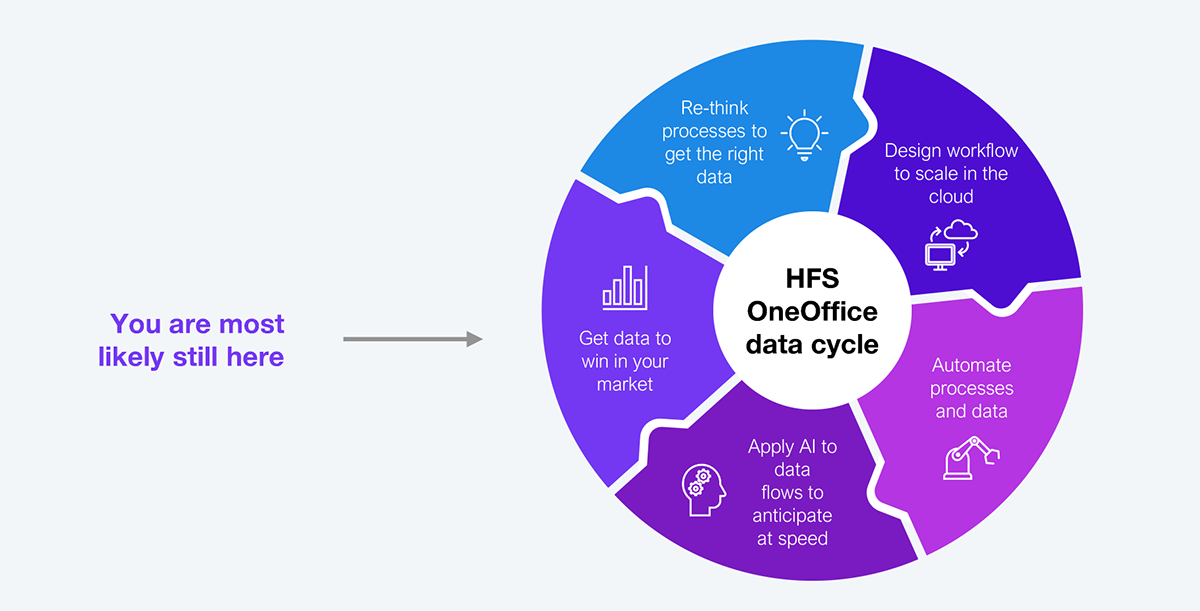To cut through industry platitudes, HFS sat down with a select group of enterprise data and analytics leaders. Our mission: uncover what it truly takes to win with data as a product and AI as a catalyst. The discussion focused on the core questions facing every ambitious enterprise:
What emerged was an honest, practical view: winning in data and AI is not about technology selection or isolated innovation. The real differentiator is a systemic, hands-on plan that transforms data from a backend function into an actual business asset.
Despite significant investments, only one-third of enterprises are genuinely satisfied that their data aligns with business objectives. Ambitious AI roadmaps are everywhere, but most organizations struggle to generate value. The culprit is not a lack of AI tools or cloud platforms; it’s the persistent failure to address fragmented, incomplete, and poor-quality data, compounded by unclear data ownership and weak governance. If you’re not making data readiness a top business priority, your AI and analytics efforts simply won’t deliver results.
Enterprise leaders can’t win by merely delegating data custodianship to IT or treating it as an afterthought. The discussion reinforced that winning organizations are those that shift culture, ownership, and accountability, i.e., elevating data to a revenue-generating, profit and loss (P&L)-oriented business product. This requires moving away from traditional central command-and-control models. Instead, the most effective enterprises are empowering business-led, federated data teams and building self-service data products that are actively managed within business units, not isolated in IT. If you still operate with centralized, legacy approaches, you’re simply not in the game.
AI is an accelerator for those who’ve done the foundational work. The focus group highlighted that leading organizations are now moving beyond basic operational AI to more innovative, business-driven use cases: customer benchmarking simulators, data enrichment platforms, and real-time compliance tools. But none of this is possible without rock-solid data integration, quality, and governance. For enterprises without this foundation, AI only serves to magnify existing dysfunction.
The HFS OneOffice model (see Exhibit 1) should be your north star, not just for IT, but for every business leader.

Source: HFS Research, 2025
The key components of the OneOffice Data Cycle are:
According to forward-looking enterprises, here’s your winning plan:
The ‘single source of truth’ is a myth in a multi-cloud, fragmented world. The future is about pragmatic interoperability and orchestration—often through emerging agentic AI approaches—not forcing all data into one lake. Enterprise winners are building data strategies that thrive amid fragmentation, focusing on connecting business outcomes across platforms and silos.
Register now for immediate access of HFS' research, data and forward looking trends.
Get StartedIf you don't have an account, Register here |
Register now for immediate access of HFS' research, data and forward looking trends.
Get Started